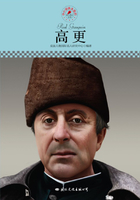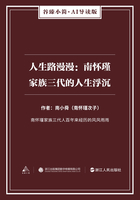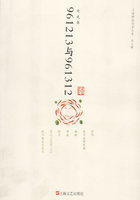1797
Signature of the preliminaries of peace-Fall of Venice-My arrival and reception at Leoben-Bonaparte wishes to pursue his success
The Directory opposes him-He wishes to advance on Vienna-Movement of the army of the Sombre-et-Mouse-Bonaparte's dissatisfaction- Arrival at Milan-We take up our residence at Montebello-Napoleon's judgment respecting Dandolo and Melzi.
Ijoined Bonaparte at Leoben on the 19th of April, the day after the signature of the preliminaries of peace. These preliminaries resembled in no respect the definitive treaty of Campo Formio. The still incomplete fall of the State of Venice did not at that time present an available prey for partition. All was arranged afterwards. Woe to the small States that come in immediate contact with two colossal empires waging war!
Here terminated my connection with Bonaparte as a comrade and equal, and those relations with him commenced in which I saw him suddenly great, powerful, and surrounded with homage and glory. I no longer addressed him as I had been accustomed to do. I appreciated too well his personal importance. His position placed too great a social distance between him and me not to make me feel the necessity of fashioning my demeanour accordingly. I made with pleasure, and without regret, the easy sacrifice of the style of familiar companionship and other little privileges. He said, in a loud voice, when I entered the salon where he was surrounded by the officers who formed his brilliant staff, "I am glad to see you, at last"-"Te voila donc, enfin;", but as soon as we were alone he made me understand that he was pleased with my reserve, and thanked me for it. I was immediately placed at the head of his Cabinet. I spoke to him the same evening respecting the insurrection of the Venetian territories, of the dangers which menaced the French, and of those which I had escaped, etc. "Care thou' nothing about it," said he;
-[He used to 'tutoyer' me in this familiar manner until his return to Milan.]
"those rascals shall pay for it. Their republic has had its day, and is done." This republic was, however, still existing, wealthy and powerful. These words brought to my recollection what I had read in a work by one Gabriel Naude, who wrote during the reign of Louis XIII. for Cardinal de Bagin: "Do you see Constantinople, which flatters itself with being the seat of a double empire; and Venice, which glories in her stability of a thousand years? Their day will come."
In the first conversation which Bonaparte had with me, I thought I could perceive that he was not very well satisfied with the preliminaries. He would have liked to advance with his army to Vienna. He did not conceal this from me. Before he offered peace to Prince Charles, he wrote to the Directory that he intended to pursue his success, but that for this purpose he reckoned on the co-operation of the armies of the Sambre-et-Meuse and the Rhine. The Directory replied that he must not reckon on a diversion in Germany, and that the armies of the Sambre-et-Meuse and the Rhine were not to pass that river. A resolution so unexpected-a declaration so contrary to what he had constantly solicited, compelled him to terminate his triumphs, and renounce his favourite project of planting the standard of the republic on the ramparts of Vienna, or at least of levying contributions on the suburbs of that capital.
A law of the 23d of August 1794 forbade the use of any other names than those in the register of births. I wished to conform to this law, which very foolishly interfered with old habits. My eldest brother was living, and I therefore designated myself Fauvelet the younger. This annoyed General Bonaparte. "Such change of name is absolute nonsense," said he. "I have known you for twenty years by the name of Bourrienne. Sign as you still are named, and see what the advocates with their laws will do."
On the 20th of April, as Bonaparte was returning to Italy, he was obliged to stop on an island of the Tagliamento, while a torrent passed by, which had been occasioned by a violent storm. A courier appeared on the right bank of the river. He reached the island. Bonaparte read in the despatches of the Directory that the armies of the Sambre-et-Meuse and the Rhine were in motion; that they were preparing to cross the Rhine, and had commenced hostilities on the very day of the signing of the preliminaries. This information arrived seven days after the Directory had written that "he must not reckon on the co-operation of the armies of Germany." It is impossible to describe the General's vexation on reading these despatches. He had signed the preliminaries only because the Government had represented the co-operation of the armies of the Rhine as impracticable at that moment, and shortly afterwards he was informed that the co-operation was about to take place! The agitation of his mind was so great that he for a moment conceived the idea of crossing to the left bank of the Tagliamento, and breaking off the negotiations under some pretext or other. He persisted for some time in this resolution, which, however, Berthier and some other generals successfully opposed. He exclaimed, "What a difference would there have been in the preliminaries, if, indeed, there had been any!"
His chagrin, I might almost say his despair, increased when, some days after his entry into the Venetian States, he received a letter from Moreau, dated the 23d of April, in which that general informed him that, having passed the Rhine on the 20th with brilliant success, and taken four thousand prisoners, it would not be long before he joined him. Who, in fact, can say what would have happened but for the vacillating and distrustful policy of the Directory, which always encouraged low intrigues, and participated in the jealousy excited by the renown of the young conqueror? Because the Directory dreaded his ambition they sacrificed the glory of our arms and the honour of the nation; for it cannot be doubted that, had the passage of the Rhine, so urgently demanded by Bonaparte, taken place some days sooner, he would have been able, without incurring any risk, to dictate imperiously the conditions of peace on the spot; or, if Austria were obstinate, to have gone on to Vienna and signed it there. Still occupied with this idea, he wrote to the Directory on the 8th of May: "Since I have received intelligence of the passage of the Rhine by Hoche and Moreau, I much regret that it did not take place fifteen days sooner; or, at least, that Moreau did not say that he was in a situation to effect it." (He had been informed to the contrary.) What, after this, becomes of the unjust reproach against Bonaparte of having, through jealousy of Moreau, deprived France of the advantages which a prolonged campaign would have procured her? Bonaparte was too devoted to the glory of France to sacrifice it to jealousy of the glory of any individual.
In traversing the Venetian States to return to Milan, he often spoke to me of Venice. He always assured me that he was originally entirely unconnected with the insurrections which had agitated that country; that common sense would show, as his project was to advance into the basin of the Danube, he had no interest in having his rear disturbed by revolts, and his communications interrupted or cut off: "Such an idea," said he, "would be absurd, and could never enter into the mind of a man to whom even his enemies cannot deny a certain degree of tact." He acknowledged that he was not vexed that matters had turned out as they had done, because he had already taken advantage of these circumstances in the preliminaries and hoped to profit still more from them in the definitive peace. "When I arrive at Milan," said he, "I will occupy myself with Venice." It is therefore quite evident to me that in reality the General-in-Chief had nothing to do with the Venetian insurrections; that subsequently he was not displeased with them; and that, later still, he derived great advantage from them.
We arrived at Milan on the 5th of May, by way of Lawbook, Thrust, Palma-Nova, Padua, Verona, and Mantua. Bonaparte soon took up his residence at Montebello, a very fine chateau, three leagues from Milan, with a view over the rich and magnificent plains of Lombard. At Montebello commenced the negotiations for the definitive peace which were terminated at Passeriano. The Marquis de Gallo, the Austrian plenipotentiary, resided half a league from Montebello.
During his residence at Montebello the General-in-Chief made an excursion to the Lake of Como and to the Ago Maguire. He visited the Borromean Islands in succession, and occupied himself on his return with the organization of the towns of Venice, Genoa, and Milan. He sought for men and found none. "Good God," said he, "how rare men are! There are eighteen millions in Italy, and I have with difficulty found two, Dandolo and Melzi."
He appreciated them properly. Dandolo was one of the men who, in those revolutionary times, reflected the greatest honour upon Italy. After being a member of the great council of the Cisalpine Republic, he exercised the functions of Proveditore-General in Dalmatia. It is only necessary to mention the name of Dandolo to the Dalmatians to learn from the grateful inhabitants how just and vigorous his administration was. The services of Melzi are known. He was Chancellor and Keeper of the Seals of the Italian monarchy, and was created Duke of Lodi.
-[Francesco, Comte de Melzi d'Eryl (1753-1816), vice President of the Italian Republic, 1802; Chancellor of the Kingdom of Italy, 1805; Duc de Loth, 1807.]
In those who have seen the world the truth of Napoleon's reproach excites little astonishment. In a country which, according to biographies and newspapers, abounds with extraordinary men, a woman of much talent-(Madame Roland.)-said, "What has most surprised me, since the elevation of my husband has afforded me the opportunity of knowing many persons, and particularly those employed in important affairs, is the universal mediocrity which exists. It surpasses all that the imagination can conceive, and it is observable in all ranks, from the clerk to the minister. Without this experience I never could have believed my species to be so contemptible."
Who does not remember Oxenstiern's remark to his son, who trembled at going so young to the congress of Munster: "Go, my son. You will see by what sort of men the world is governed."















